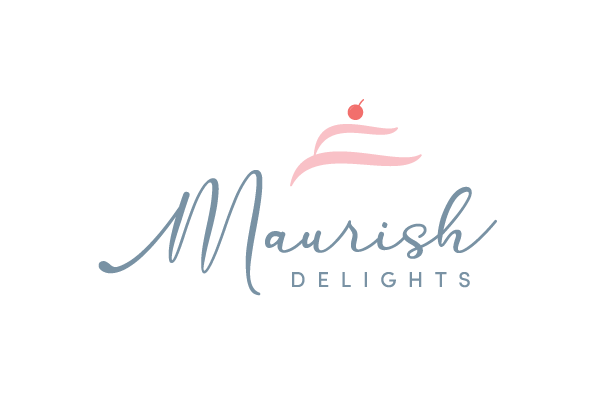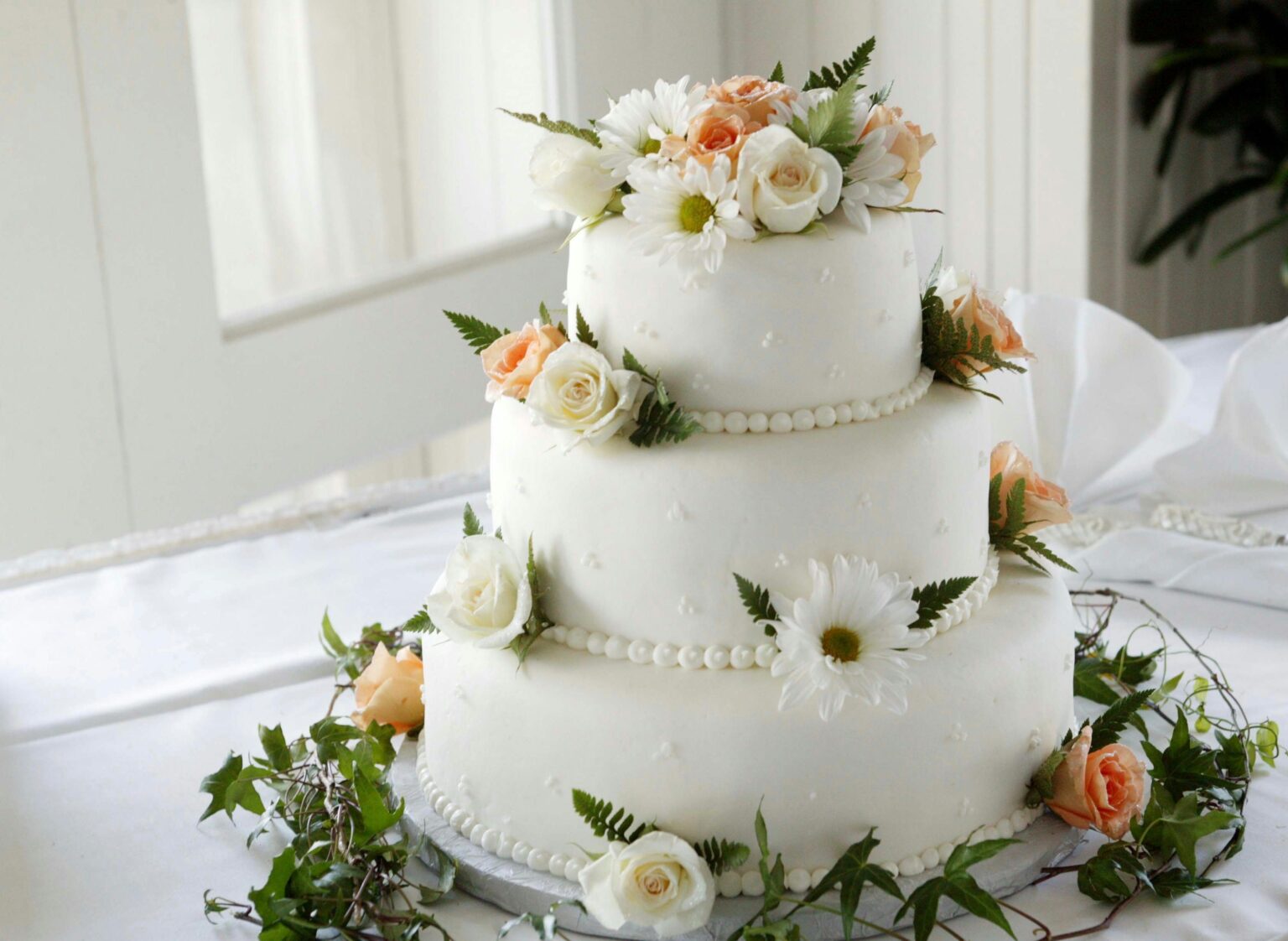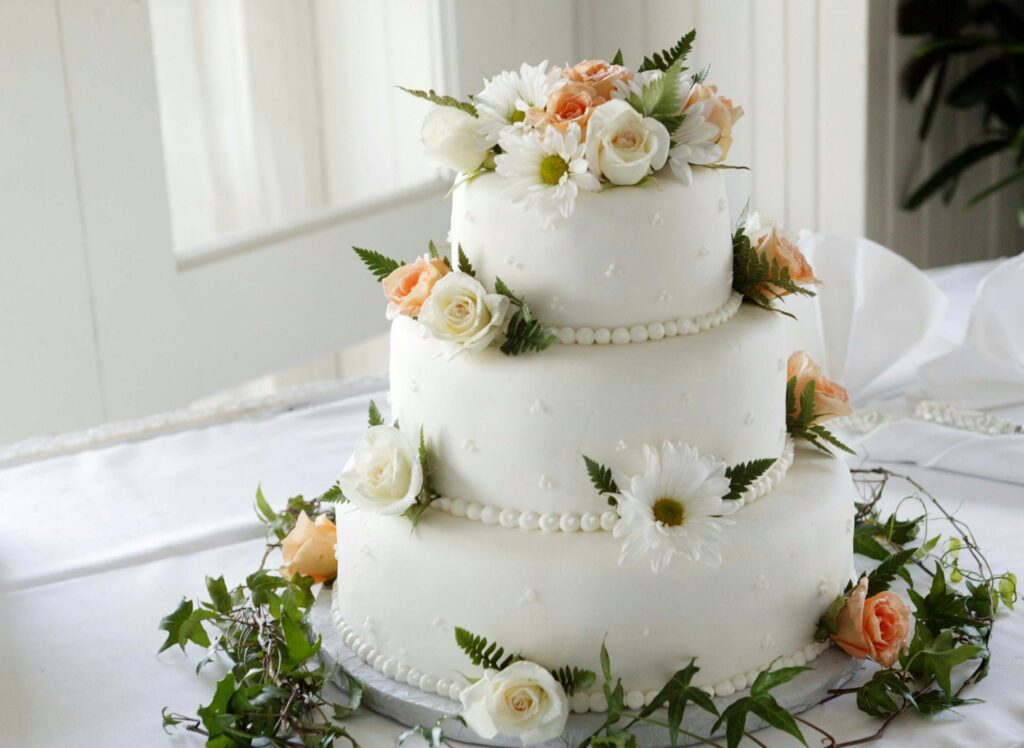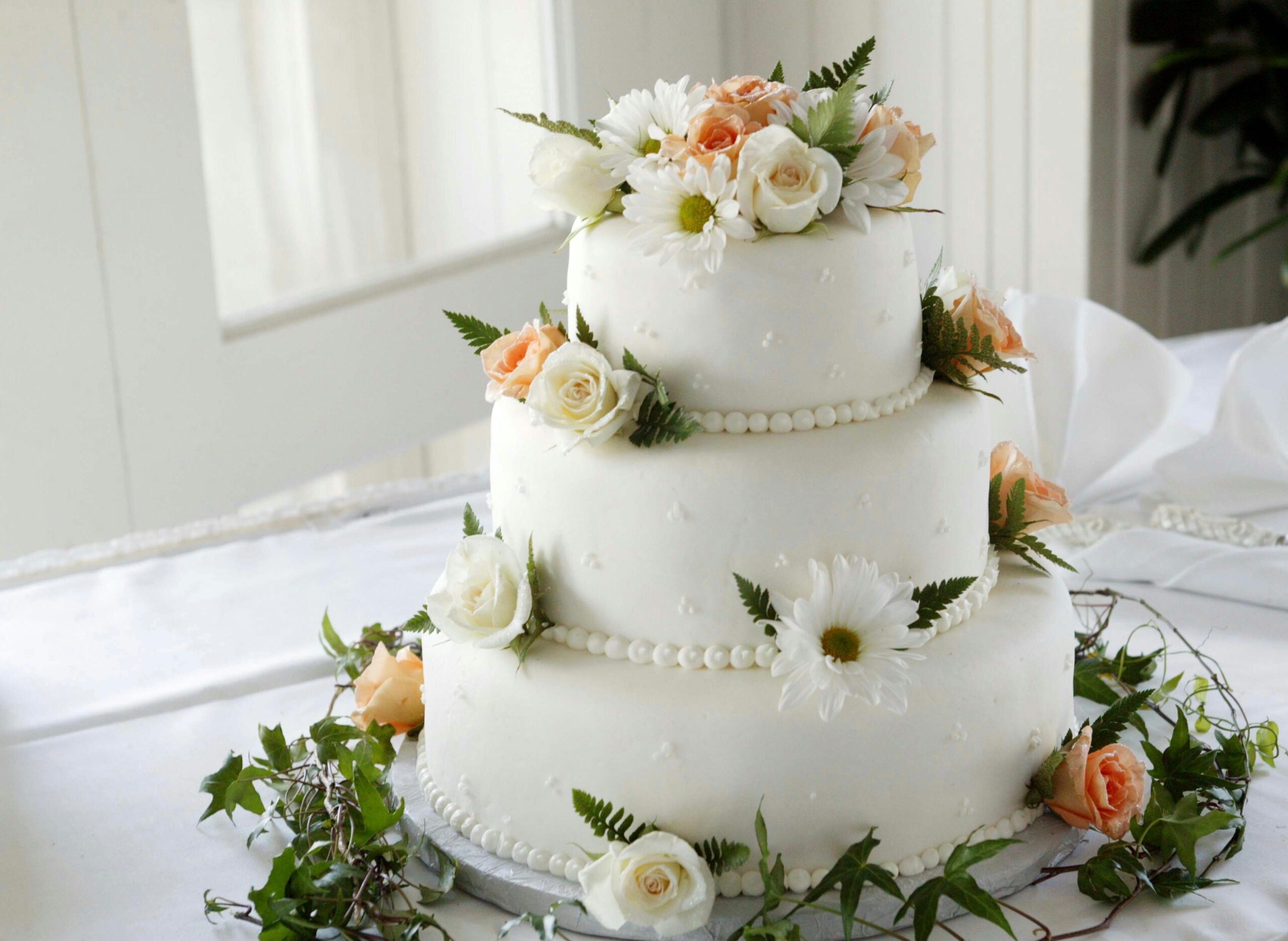Selecting the perfect wedding cake is an exciting part of wedding planning. Here are some expert tips to help you choose a cake that complements your theme and delights your guests:
- Start Early: Begin your cake search at least six months before your wedding date. This gives you ample time to find the right baker and design your dream cake.
- Set a Budget: Wedding cakes can vary widely in price. Establish a budget early on and communicate this to your baker to avoid any surprises.
- Choose a Style: Your cake should reflect your wedding theme and personal style. Browse through magazines, websites, and social media for inspiration, and bring your ideas to your consultation.
- Consider the Venue: The cake design should suit your wedding venue. For instance, a grand, multi-tiered cake is perfect for a large ballroom, while a simpler, rustic cake may be better suited for an outdoor or barn wedding.
- Flavor Matters: While the design is important, the flavor is crucial. Schedule a tasting with your baker to sample different flavors and fillings. Choose a flavor that you and your partner love, but also consider popular choices that will please your guests.
- Pay Attention to Details: Discuss all the details with your baker, from the type of frosting and decorations to the cake topper. Ensure that your cake will look stunning and taste delicious.







